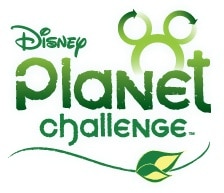After several years of talks, the Rainforest Action Network (RAN) scored a major victory this month, when they were finally able to convince the Disney Corporation to give up their destructive environmental printing practices.
Disney is one of America’s top ten publishers of children’s books, and an analysis by RAN showed that the bulk of the company’s paper for their printing was coming from the endangered Indonesian rainforests. This was first discovered in 2010, and RAN was able to convince eight of the top U.S. publishers to change their practices and swear off the use of rainforest pulp for their paper. Nine of the top ten publishers were found to be using paper pulp that came directly from the Indonesian rainforests.
At that time, however, Disney (along with Harper Collins) refused to sign onto the idea.
Much of the printing done by these corporations takes place overseas, particularly in China. China has become a major importer of Indonesian rainforest pulp, making it likely that the printing being done overseas is being done on rainforest paper. As demand increases, it puts an enormous burden on the already shrinking rainforests, which has the potential to wipe out endangered species like the Sumatran tiger.
But after two years of talks, and a protest by RAN in May 2011, the Disney Corporation decided that rainforests were more important if left undisturbed.
From RAN:
Disney has announced a comprehensive paper policy that maximizes its use of environmentally superior papers like recycled and eliminates controversial sources like those connected to Indonesian rainforest destruction. This policy applies to the company’s entire international operations, including thousands of licensees of Disney characters.
Indonesia’s rainforests are being destroyed at an estimated rate of 2.5 million acres each year. On Sumatra, an Indonesian island bigger than the state of California, two paper giants – Asia Pulp and Paper (APP) and Asia Pacific Resources International (APRIL) – are responsible for the lion’s share of this rainforest destruction. While only about 400 Critically Endangered Sumatran tigers remain in the wild, APP and APRIL continue to destroy their remaining rainforest habitat for throwaway paper products.
Disney’s policy makes clear that rainforests are more valuable left standing than pulped for paper. This policy adds Disney to a growing list of companies that are turning away from deforestation in their supply chains and sending strong signals to APP, APRIL and others in the pulp and paper industry that they must institute major reforms that protect forests and address social conflict and human rights violations. Disney’s commitment will reduce the demand for paper made at the expense of rainforests while creating incentives for improved forest management and green growth.
Not only will this new policy that is being adopted by massive publishing companies help save the rainforest, but it will also cut down significantly on the amount of greenhouse gas emissions in Indonesia. RAN says that as much as 80% of the GHG emissions in Indonesia come from the practice of deforestation and clear-cutting.
Subscribe to our newsletter
Stay up to date with DeSmog news and alerts






